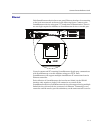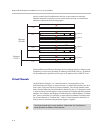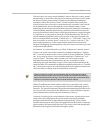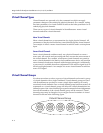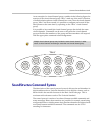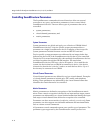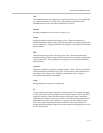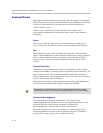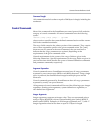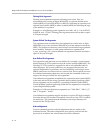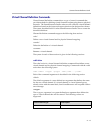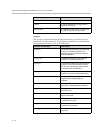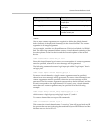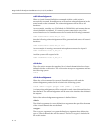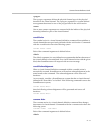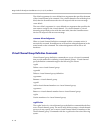
Command Protocol Reference Guide
A - 11
Command Length
All commands must be less than or equal to 2048 bytes in length, including the
terminator.
Control Commands
Most of the commands in the SoundStructure control protocol fall under the
category of control commands. All control commands have the following
syntax:
<action> [<arg> [<arg> [<arg> ... ]]]<term>
where <action> specifies the system-defined command action and the <term>
field is the command terminator.
The <arg> fields comprise the <data> portion of the command. They contain
zero or more arguments specific to the given command action. The [ and ]
characters are not present in the actual command, they are used here to
indicate that the <arg> parameters are optional, depending on the
requirements of the given command action.
General requirements for the syntax of the <arg> fields are given in the
following subsections. Specific requirements for the <arg> fields are given in
previous sections which describe the syntax of channel definition commands
and parameter commands, respectively.
Argument Separation
Control commands sent to SoundStructure must have all <arg> parameters
separated by one or more space (0020) or tab (0009) characters. Using a single
space is preferred, but SoundStructure supports multiple space and tab
characters.
Control commands generated by SoundStructure have all <arg> parameters
separated by exactly one space character.
All arguments of control commands will be one of the following types: integer
arguments, floating-point arguments, system-defined text arguments, or
user-defined text arguments.
Integer Arguments
Integer arguments represent an integer value. They are represented using a
string of digits (0030-0039) with an optional leading plus symbol (002B) or
minus symbol (002D). Examples of valid integer arguments are 5, -2, and +7.
Integer arguments must be less than or equal to 32 bytes in length.



